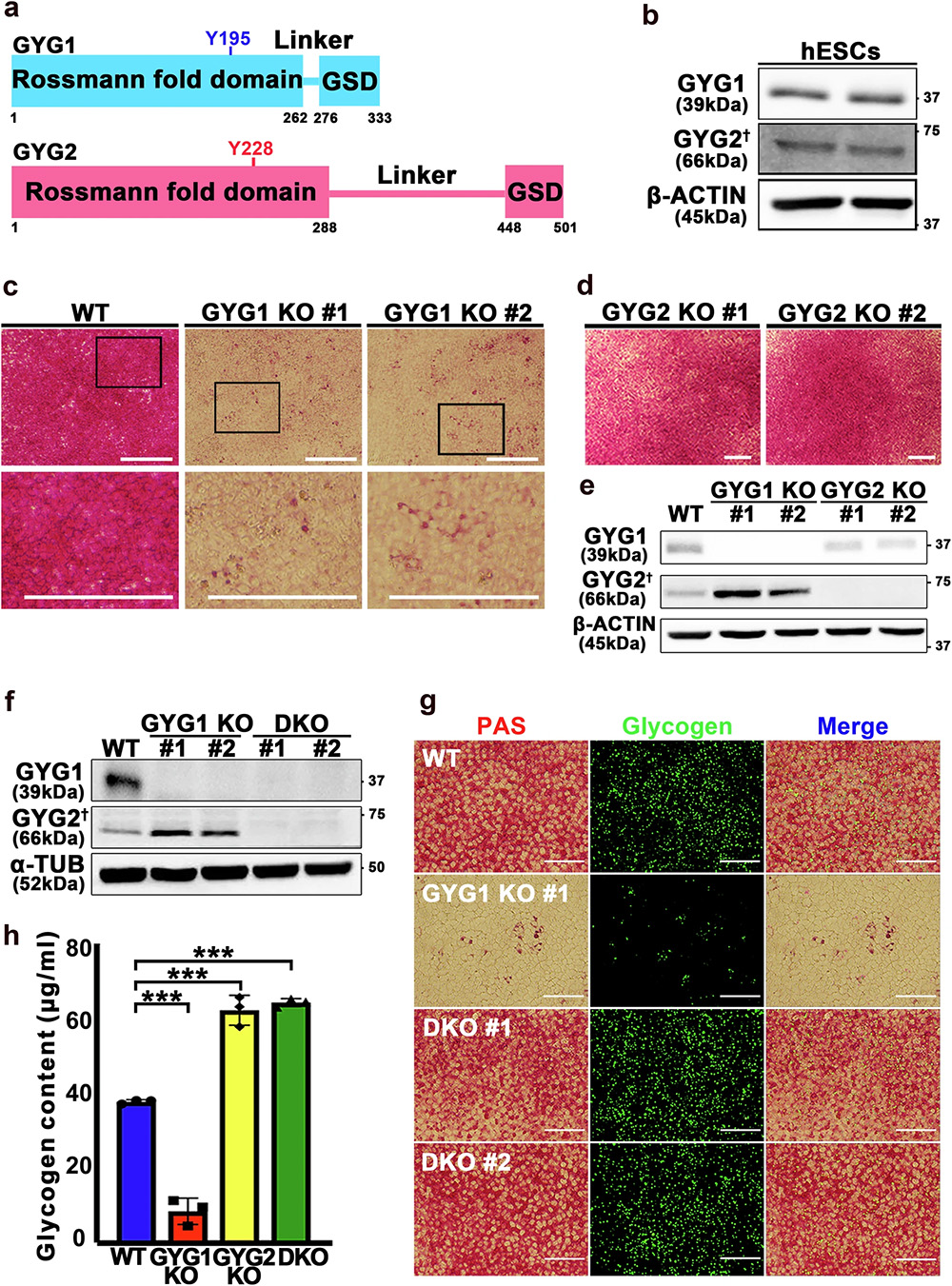
 中央研究院 生物化學研究所
中央研究院 生物化學研究所
Proper regulation of glycogen metabolism is fundamental to cellular energy homeostasis, and its disruption is associated with various metabolic disorders, including glycogen storage diseases (GSDs) and potentially diabetes. Despite glycogen's role as an essential energy reservoir, the mechanisms governing its synthesis and structural diversity across tissues remain unclear. Here, we uncover the distinct physiological roles of the human glycogenins GYG1 and GYG2 in glycogen synthesis. Through cellular models, structural biology, and biochemical analyses, we demonstrate that, unlike GYG1, GYG2 exhibits minimal autoglycosylation activity and acts as a suppressor of glycogen formation. Together, these two glycogenins coordinate glycogen synthase activity and influence glycogen assembly in a cell-type-dependent manner. Importantly, these glycogenins modulate glucose metabolic pathways, thereby ensuring cellular glucose homeostasis. These findings address longstanding questions in glycogen metabolism and establish both GYG1 and GYG2 as critical regulators of glycogen synthesis and breakdown in human, providing insights with potential therapeutic implications for treating GSDs and metabolic diseases.
